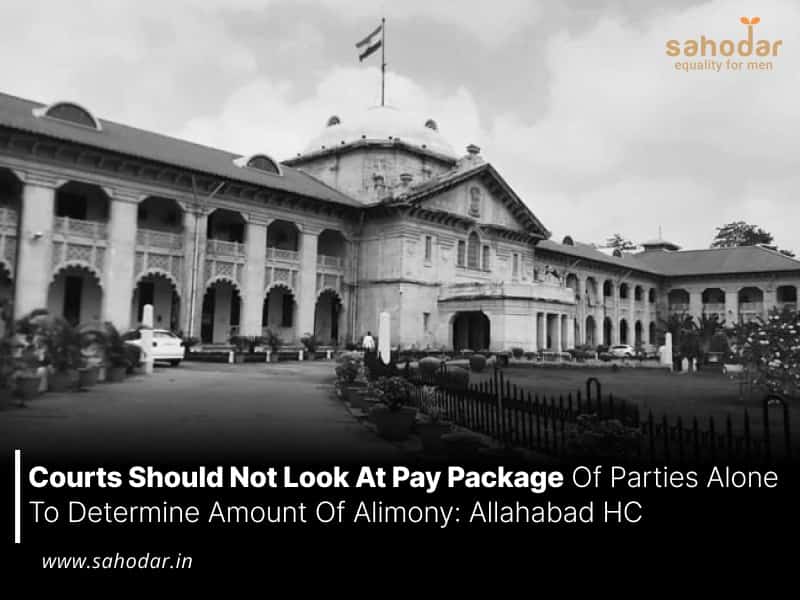The Allahabad High Court ruled that courts should not rely solely on the pay packages of the parties when determining the amount of alimony to be awarded.
The Court refused to overturn the family court’s decision to grant permanent alimony to the wife, considering that the husband had legally remarried and, therefore, had additional responsibilities and financial obligations.
A Division Bench of Justice Saumitra Dayal Singh and Justice Donadi Ramesh observed, “While money may always short to fulfill all human needs, the Courts may not look at the pay package of the parties alone to determine the amount of alimony that would be awarded.”
Advocate Abha Gupta appeared for the appellants, while Advocate Manish Tandon represented the respondent.
The wife filed an appeal under Section 19 of the Family Court Act, 1984, challenging the judgment and order of the family court, which had issued a decree under Section 25 of the Hindu Marriage Act, 1955 (HMA) granting a lump sum alimony. Additionally, the family court had adjusted a certain amount for the daughter, referencing an earlier divorce decree under Section 13 of the HMA on the grounds of cruelty.
During the separation, the family court had issued an order under Section 125 of the Cr.P.C., awarding maintenance to the wife and daughter (the appellants). This monthly maintenance amount was later revised under Section 127 of the Cr.P.C. The parties informed the Court that, while recoveries were still pending, they had reached a compromise.
The husband informed the court that after the dismissal of the First Appeal, he remarried and now has three children from his second marriage. He also mentioned that he is responsible for caring for two siblings with special needs.
Observing that the marriage between the parties lasted only three years and that the husband was already burdened with liabilities under Section 125 Cr.P.C., the High Court concluded that the alimony awarded by the family court did not warrant any interference.
The Court observed, “In the entirety of facts and circumstance where the marriage between the parties survived only for three years and they have remained separated since then and also considering the fact that the respondent remarried, in accordance with law giving rise to his further responsibilities and financial liabilities, as also considering the fact that earlier the respondent was saddled with the liabilities under Section 125 Cr.P.C., primarily, we do not find any good ground to interfere with the order of the award of maintenance of permanent alimony.”
However, the Court acknowledged the appellants’ argument that the family court had mistakenly deducted a portion of the permanent alimony awarded to the wife.
“Whatever was paid to the daughter born to the parties, may not have been adjusted against the amount payable to the appellant no.1,” the Bench stated.
Consequently, the Court ordered, “The amount so deposited may be released in favour of appellant no.1 subject to both appellants giving an undertaking before the learned Court below to withdraw from all cases/proceedings instituted against the respondent include those seeking more money either towards alimony or maintenance and further undertaking not to institute any other proceeding civil or criminal.”
Accordingly, the High Court partly allowed the appeal.

